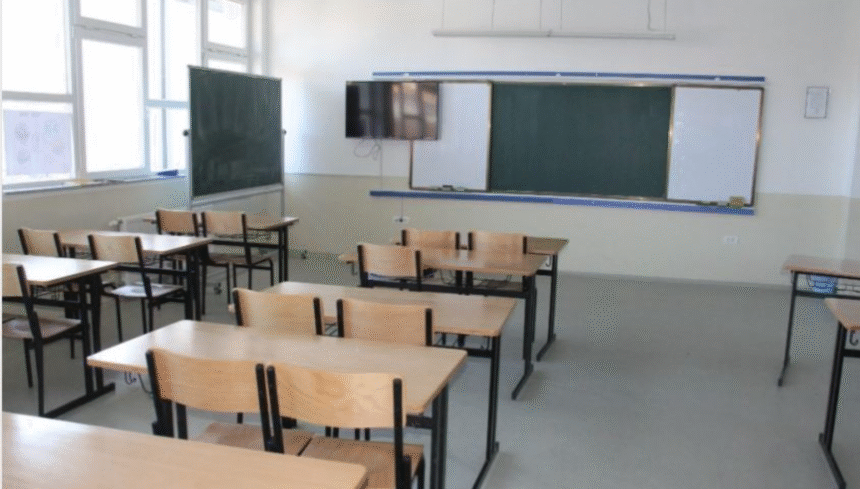The United Union of Education, Science, and Culture (SBASHK), on the eve of the new school year, has warned of a strike and other union actions if dialogue with the Ministry of Education, Science, and Technology (MASHT) does not begin by September 20 of this year.
SBASHK’s main demands include the negotiation and signing of a new collective agreement, an increase in the salary coefficient, and the implementation of the Constitutional Court’s decision regarding work experience, along with other issues related to the rights and working conditions of education workers.
SBASHK Vice President, Vjollca Shala, told KosovaPress that if dialogue with MASHT does not begin by September 20, the union will convene its steering council to assess the situation and may take union action, including a strike.
“When we talk about teachers’ issues and SBASHK’s demands, we previously held an extraordinary congress, the ninth congress. At the congress, a decision was made by the union’s highest body that if dialogue with the Ministry of Education does not start by September 20, the steering council, as the highest organ between two congresses, will meet to analyze the situation and may proceed with union actions, including a strike,” Shala explained.
Regarding SBASHK’s main demands, Shala emphasized that a salary increase of 55 euros is symbolic compared to the sharp rise in the cost of living.
“SBASHK’s demands include the negotiation and signing of a new collective agreement. Another demand is the increase in the salary coefficient. For two years now, the coefficient value has not been increased in the salary law, despite inflation. The current coefficient increase is 55 euros, which is very symbolic compared to the enormous rise in prices of basic goods. We also demand the implementation of the Constitutional Court’s decision: from July 2024, this decision regarding work experience for the first 15 years should have been implemented. Currently, it is being paid at 0.25%, while the court decision states it should be 0.5%,” Shala said.
She also highlighted that SBASHK submitted a citizens’ legislative initiative to amend the state-funded pension schemes law, aiming to recognize teachers’ working years during 1990–1999, which are currently not counted as contributory years.
Shala further mentioned the difficult working conditions in Kosovo’s schools, emphasizing the lack of digitalization in many schools, in contrast to neighboring countries where this process has progressed further.
The SBASHK Vice President stressed that since 2022, there have been no productive meetings with the Ministry of Education, particularly with Minister Nagavci.
“With the Ministry of Education, and specifically Minister Nagavci, since 2022, we have had only one formal 15-minute meeting when the Vice President of the U.S. Teachers’ Union visited. We had no opportunity to present the demands of education workers. We also had a meeting on the day of a protest… Otherwise, regarding the demands we continuously make to sit and discuss with the aim of resolving the issues and requests of education workers, we have had no such meeting since 2022,” Shala stated.
Additionally, Shala addressed the method of subsidizing schoolbooks for students, noting that the process in the past two years has not been adequate. She considered the previous method, where books were provided in advance to students, as more effective and cost-efficient.
“It has been observed in the past two years that the method was not appropriate, as students sometimes went months without schoolbooks. The previous approach of providing books in advance was much better and cheaper… There were cases where the subsidy went directly to families, considering that some families are poor, and they may have used the money for other basic needs instead of buying books. As a result, students sometimes went the whole year without books,” Shala emphasized.
SBASHK held its last protest on December 4, 2024, demanding higher salaries and the signing of the collective agreement.







